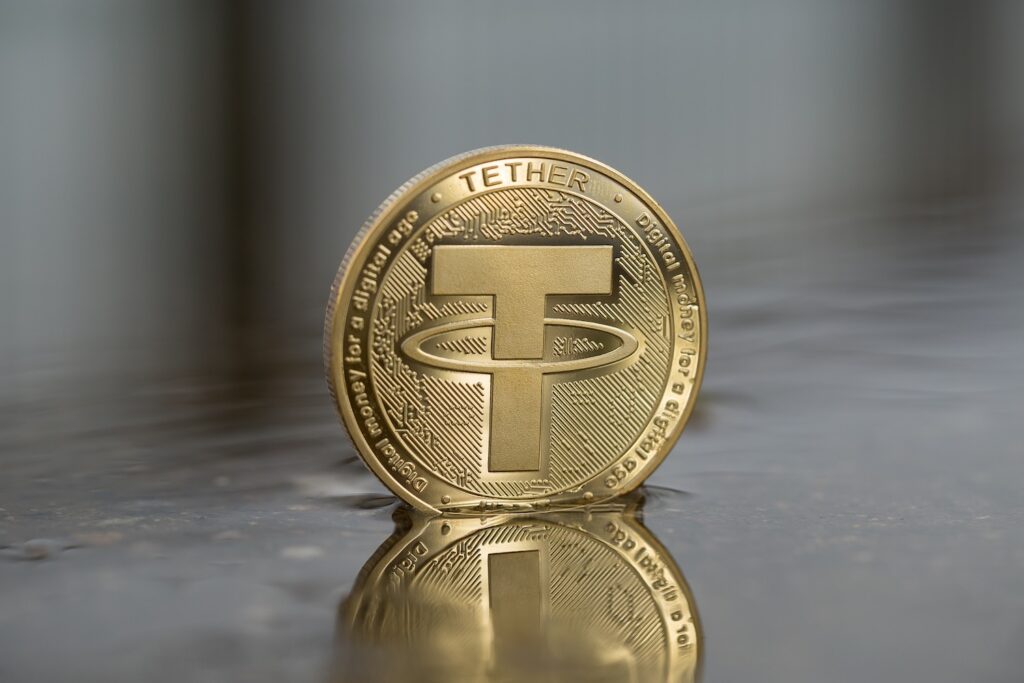FTX Digital Markets, the Bahamian division of the collapsed FTX exchange, is set to issue its first round of repayments to creditors on Feb. 18. This marks a major development in the crypto industry’s recovery following FTX’s near $9 billion collapse.
The exchange’s downfall led to a series of insolvencies and the longest crypto winter in history, with Bitcoin bottoming at $16,000. Now, creditors owed less than $50,000 in claims will receive repayments, marking a critical step toward financial resolution.
$1.2 Billion in Capital Reintroduced to Market
According to Sunil, a member of the FTX Customer Ad-Hoc Committee, the first batch of repayments will amount to an estimated $1.2 billion. This could positively impact market liquidity and investor sentiment.
Bitget Wallet’s COO Alvin Kan noted, “The $1.2 billion repayments may see a significant portion reinvested into cryptocurrencies, potentially impacting market liquidity and prices.”
Controversy Over Repayment Valuation
Despite the positive impact, some creditors have criticized the repayment model, which bases reimbursements on cryptocurrency values from November 2022—when Bitcoin was trading nearly 370% lower than current prices.
Limited Market Impact, But a Victory for Justice
While these repayments may not significantly move the market, they represent an important step toward restoring trust in the crypto industry. Magdalena Hristova, PR manager at Nexo, stated:
“The collapse impacted many investors and cast a shadow over crypto. For retail investors, especially those without diversified portfolios, these repayments offer not just the return of funds but a sense of stability and peace of mind.”
Solana (SOL) has been one of the worst-performing cryptocurrencies over the past 24 hours, dropping 6.80% to $180.80 as of February 17. This decline stands in stark contrast to the broader crypto market’s 1.72% dip.
Link to High-Profile Rug Pulls
One major factor contributing to Solana’s struggles is its association with high-profile scams. A recent Bubblemaps investigation revealed that wallets linked to the fraudulent LIBRA token—associated with Argentine President Javier Milei—were also behind the Melania (MELANIA) memecoin, promoted by former U.S. First Lady Melania Trump.
The same wallet, labeled “0xcEA,” played a pivotal role in both scams, generating millions in profits through market manipulation and crosschain fund transfers.
Memecoin Hype Turning Toxic
Solana’s underperformance has been exacerbated by the launch of Pump.fun, a memecoin platform that made it easier and cheaper to create speculative tokens. This has led to an influx of low-quality projects, many of which turned out to be scams or pump-and-dump schemes.
Crypto analyst Benjamin Cowen pointed out that while Solana initially benefited from the memecoin frenzy, the trend is now backfiring. As speculative traders cash out, SOL’s price remains vulnerable to further corrections.
The Securities and Exchange Commission (SEC) has temporarily suspended its fraud lawsuit against Geosyn Mining and its executives after federal prosecutors filed similar charges against the company’s leadership.
On February 14, the SEC submitted a request to a Texas federal court, agreeing to put the case on hold. This decision followed the voluntary surrender of Geosyn CEO Caleb Joseph Ward and former operating chief Jeremy George McNutt, who appeared in court the day before.
Allegations of Fraud and Misuse of Funds
An FBI affidavit, unsealed on February 10, alleged that Ward, McNutt, and former sales manager Jared McNutt orchestrated a scheme to defraud customers. While Jared McNutt was not named in the SEC’s suit, prosecutors claim the trio lured customers with promises of Bitcoin mining services.
Clients were led to believe Geosyn would purchase and operate Bitcoin mining rigs on their behalf in exchange for a monthly fee, with earnings from the mined BTC distributed to them. However, prosecutors allege that in many instances, the equipment was never purchased, and customer funds were instead used to finance personal luxuries.
According to court filings, the executives spent money on guns, luxury watches, a family vacation to Disney World, and an extravagant business trip to Miami, where they accumulated significant charges at restaurants and nightclubs using company credit cards.
Fake Reports and Ponzi-Like Practices
The affidavit also details how the trio misled customers by issuing fake reports showing earnings from non-existent mining operations. Additionally, funds from new investors were used to buy Bitcoin and distribute it to earlier clients, a move reminiscent of a Ponzi scheme.
Prosecutors further alleged that the executives manipulated mining rig prices, overcharging clients beyond the stated procurement fees. A spreadsheet allegedly maintained by the company revealed real versus inflated costs, highlighting the deception.
SEC’s Case and Future Developments
The SEC’s lawsuit claims Ward and McNutt defrauded 64 investors out of approximately $5.6 million between November 2021 and December 2022. The agency also alleges Geosyn failed to purchase 400 out of the 1,400 rigs it had promised and neglected to activate most of the rigs it did buy.
In response, Ward has refuted allegations that the company sold unregistered securities. Additionally, he previously reported McNutt for embezzlement but failed to disclose his own financial misdeeds.
Both Ward and McNutt have urged the court to delay the SEC’s proceedings, citing the criminal case and potential shifts in regulatory enforcement under the Trump administration. Trump has signaled plans to ease regulatory actions against the crypto industry, which could impact the SEC’s approach to enforcement.
Tether, the world’s largest stablecoin issuer, has been in active discussions with U.S. lawmakers to help shape regulations for stablecoins. These talks are crucial as the U.S. government seeks to implement clearer policies on stablecoins, with Tether at the forefront of the conversation.
Tether has been working closely with Congressmen Bryan Steil and French Hill, the co-authors of the STABLE Act introduced in early February. The company’s CEO, Paolo Ardoino, confirmed that Tether aims to provide input on several other stablecoin-related bills currently under review. “We are not going to just throw in the towel and let Tether die just for the sake of not adapting to US legislation. But there is still a lot of uncertainty over what’s actually going to happen, and we want our voice to be heard in the legislative process,” Ardoino stated.
The STABLE Act, a legislative proposal, is designed to provide a comprehensive framework for stablecoin issuers, requiring them to maintain full collateral backing for their tokens and submit to monthly audits by a U.S.-based accounting firm. This regulatory push reflects growing concerns over the stability of stablecoins, particularly in light of their rapid adoption and integration into the broader financial system.
Tether’s proactive involvement in the regulatory process highlights the company’s desire to ensure compliance while continuing to operate in the U.S. market.
The company’s approach comes at a time when the Securities and Exchange Commission (SEC) and other government agencies are closely scrutinizing the crypto sector. Tether’s cooperation could help set a precedent for how stablecoins will be regulated moving forward, especially as the global use of stablecoins continues to rise.
Moreover, the Federal Reserve has expressed interest in stablecoins as a means to broaden the reach of the U.S. dollar, suggesting that stablecoin adoption could further cement the dollar’s position as the world’s dominant reserve currency.
Argentine President Javier Milei is now under intense scrutiny after his endorsement of the $LIBRE cryptocurrency, which experienced a massive collapse in what many are calling a “rug pull” scam. The token, based on the Solana blockchain, skyrocketed in value after Milei’s public promotion on X (formerly Twitter) on February 14, with its market cap briefly hitting $4.56 billion. However, within 11 hours, the value of the token dropped by over 94%, leaving many investors with significant losses.
Milei had shared a post that included a link to the project’s website and a contract address, touting the token as a private initiative aimed at promoting the Argentine economy. However, as the token’s price rapidly declined, analysts raised alarms about the potential manipulation of its value, a hallmark of the infamous “rug pull” scam where developers artificially inflate a token’s value before cashing out and leaving investors holding the bag.
The collapse of $LIBRE has sparked an uproar in Argentina, with opposition lawmakers calling for Milei’s impeachment. Leandro Santoro, an Argentine lawmaker, was one of the first to demand that Milei be held accountable, stating that the scandal embarrassed the country on the international stage. “This scandal, which embarrasses us on an international scale, requires us to launch an impeachment request against the president,” Santoro told Reuters on February 16.
In a statement released shortly after the collapse, Milei denied any involvement with the project beyond his initial endorsement, stating he had no detailed knowledge of $LIBRE’s specifics. He also condemned the political opposition for attempting to use the incident to undermine his presidency, calling them “filthy rats” for trying to take advantage of the situation.
Despite his defense, Milei has requested that Argentina’s Anti-Corruption Office investigate the incident, including examining the actions of government officials. Furthermore, the President’s office disclosed that Milei had met with representatives from KIP Protocol, the company behind $LIBRE, as early as October 2024, further complicating the narrative around his involvement.
In the final quarter of 2024, both Coinbase and Robinhood reported financial results that significantly surpassed market expectations, driven by a surge in cryptocurrency trading volumes. This performance has led analysts to adjust their price targets for both companies.
Coinbase reported a revenue of $2.3 billion for Q4 2024, an 88% increase from the previous quarter, with a net income of $1.3 billion. Retail trading volumes reached $94 billion, while institutional volumes hit a three-year high of $345 billion. This growth is attributed to a post-election boost in market optimism, as President Donald Trump has pledged to establish the U.S. as “the world’s crypto capital” and has appointed industry-friendly leaders to key regulatory positions.
Over the past year, Coinbase’s stock has risen approximately 112%. Analysts from JPMorgan have raised their price target for Coinbase’s stock (COIN) to $344, up from $264. They noted, “The fourth quarter, and we would argue 2024 overall, was a pivotal and consequential period for the crypto ecosystem—market caps exploded, volumes jumped, new participants entered the market, and regulatory confidence completely flipped.”
Robinhood, primarily known for stock trading, has seen substantial growth in its cryptocurrency segment. In Q4, the company reported crypto transaction revenue of $358 million, accounting for approximately 35% of its total revenue—the highest contribution to date. This represents a 700% increase in crypto revenue year-over-year. Robinhood’s stock has surged about 365% in the past 12 months. JPMorgan analysts have increased their price target for Robinhood’s shares (HOOD) to $45 from $39, highlighting the growing importance of crypto trading in the company’s business model. They stated, “Typically, we see crypto revenue contribute 10-20% of revenue any given quarter.”
The surge in cryptocurrency trading volumes has been largely driven by renewed market optimism following the U.S. election. President Trump’s administration has expressed strong support for the cryptocurrency industry, with promises to position the U.S. as a global leader in the crypto space. This favorable regulatory environment has encouraged increased participation from both retail and institutional investors, contributing to the impressive financial performances of both Coinbase and Robinhood.
The combination of favorable political developments and a bullish cryptocurrency market has propelled Coinbase and Robinhood to exceed financial expectations in Q4 2024. Analysts remain optimistic about the future growth prospects of both companies, as they continue to capitalize on the expanding crypto ecosystem.
Michigan is the latest U.S. state to introduce legislation for a strategic Bitcoin reserve, joining 19 others in advancing crypto-related investment bills.
On Feb. 13, Representatives Bryan Posthumus and Ron Robinson introduced HB 4087, aiming to amend Michigan’s Management and Budget Act to establish a Bitcoin reserve.
With this move, Michigan becomes the 20th state considering legislation on government-held crypto reserves.
“Michigan can and should join Texas in leading on crypto policy by signing into law my bill creating the Michigan Crypto Strategic Reserve,” Posthumus stated on X.
His proposal follows a similar bill filed by Texas Senator Charles Schwertner on Feb. 12.
The Michigan bill would grant the state treasurer the authority to invest up to 10% of both the general fund and economic stabilization fund into cryptocurrency. However, it does not outline restrictions on which digital assets can be acquired.
A key provision in the bill allows for lending crypto, stating:
“If cryptocurrency can be loaned without increasing financial risk to this state, the state treasurer is permitted to loan the cryptocurrency to yield further return to this state.”
Crypto holdings must be managed through secure custody solutions or exchange-traded products offered by registered investment firms.
Michigan’s state pension fund already has exposure to Bitcoin and Ether through exchange-traded funds.
Posthumus also floated the idea of launching “MichCoin,” describing it as “a stablecoin, which I believe the state of Michigan should create” and one that “would have real value—tied to our gold and silver reserves.”
As of now, 20 states have progressed crypto reserve bills beyond the House committee stage. Texas is the most recent to introduce legislation, while North Dakota remains the only state to have rejected such a proposal.
The U.S. Securities and Exchange Commission (SEC) has formally acknowledged Grayscale’s filings to list spot XRP and Dogecoin exchange-traded funds (ETFs), marking a key step in the regulatory review process.
On Feb. 13, the SEC accepted Grayscale’s Form 19b-4 filings for the Grayscale XRP Trust and Grayscale Dogecoin Trust. This acknowledgment means the agency will soon begin its review, with a decision required within 240 days.
The official countdown will start once the filings are published in the SEC’s federal register, a process that typically occurs within a few days. If entered now, the final decision would be expected around mid-October.
In recent weeks, the SEC has also acknowledged applications for spot Litecoin and Solana ETFs, signaling a shift in its stance toward crypto-related investment products under the Trump administration.
Under former SEC Chair Gary Gensler, the commission rejected at least two Solana ETF applications, while Grayscale had to fight a lengthy court battle to push for the approval of its Bitcoin trust conversion into an ETF.
Bloomberg ETF analysts James Seyffart and Eric Balchunas recently estimated that the odds of approval for an XRP ETF stand at 65%, while Dogecoin has a 75% chance before the end of 2025.
“The pair have also given 90% odds of a Litecoin ETF being approved before the end of the year.”
XRP’s approval could be complicated by ongoing legal uncertainty. Seyffart has suggested that an ETF wouldn’t move forward until the SEC’s lawsuit against Ripple Labs is resolved.
Dogecoin, however, may have an easier path since it shares similarities with Bitcoin, which has already been approved for ETFs. The SEC has not suggested Dogecoin could be classified as a security, potentially making approval more straightforward.
MicroStrategy has declined to comment on allegations that the Nasdaq-listed company has been inflating its Bitcoin holdings in a bid to raise investor funds more aggressively and continue to accumulate more BTC in the long-run.
The allegation was made by a whistleblower, and, when presented with this accusation by Crypto Intelligence News, MicroStrategy declined to comment.
If MicroStrategy is indeed inflating or misrepresenting its bitcoin holdings, the implications could be severe, both for the company and the broader cryptocurrency market.
First and foremost, misleading investors about its BTC reserves would constitute securities fraud, exposing MicroStrategy to legal action from regulators like the U.S. Securities and Exchange Commission (SEC).
This could result in hefty fines, leadership changes, and even criminal liability for executives involved. Shareholders who suffered financial losses due to false information could also file lawsuits, further damaging the company’s financial stability.
Beyond legal risks, this matter undermine trust in corporate bitcoin holdings, as MicroStrategy has positioned itself as a pioneer in corporate BTC adoption, and any scandal could discourage other publicly traded companies from integrating bitcoin into their treasuries. This could stall institutional adoption and negatively impact BTC’s price.
Additionally, given Michael Saylor’s strong influence in the crypto space, any revelation of fraud could trigger panic selling, leading to heightened volatility in bitcoin markets. It could also invite stricter regulatory scrutiny over corporate crypto holdings, potentially leading to new reporting requirements and transparency standards for companies holding digital assets.
MSTR Shareholders Benefit, For Now
Earlier this week, Michael Saylor, executive chairman of Microstrategy Inc. (Nasdaq: MSTR), highlighted the company’s latest bitcoin gains in a Feb. 11 post on X. Now rebranded as Strategy, the company continues to expand its bitcoin holdings.
Saylor stated: “So far this year, Strategy treasury operations have resulted in a BTC Gain of ₿18,527, which equates to a BTC $ Gain of ~$1.8 billion for MSTR shareholders.”
Microstrategy’s bitcoin holdings now stand at 478,740 BTC, with a total net asset value (NAV) of $46.7 billion. The firm reported a 74.3% BTC yield for 2024, cementing its status as the largest corporate bitcoin holder. The latest figures demonstrate its commitment to bitcoin as a primary treasury asset.
In a Feb. 10 SEC filing, the company revealed its latest bitcoin purchase—7,633 BTC for $742.4 million at an average price of $97,255 per coin. This acquisition, which contributed to a 4.1% BTC yield YTD 2025, was funded through stock sales and a preferred stock offering, continuing Microstrategy’s strategy of leveraging capital markets for bitcoin accumulation.
Earlier this month, the company reported its fourth-quarter 2024 earnings, highlighting major milestones. CFO Andrew Kang noted:
“The fourth quarter of 2024 marked our largest ever increase in quarterly bitcoin holdings, culminating in the acquisition of 218,887 bitcoins acquired for $20.5 billion since the end of Q3.”
Microstrategy credited its capital-raising efforts, including equity offerings and convertible note issuances, for fueling these purchases.
Saylor remains bullish on bitcoin’s long-term potential, forecasting a base-case price of $13 million per coin by 2045, with a bear-case at $3 million and a bull-case at $49 million, depending on adoption and growth rates.
Velar, a decentralized Bitcoin exchange protocol, has introduced the Content Creator Yield Program, a groundbreaking initiative that rewards content creators similarly to yield farming. The program will distribute 50,000 $VELAR weekly (200,000 $VELAR monthly) among five contributors through a raffle system that converts engagement into rewards.
This initiative allows creators—ranging from bloggers and podcasters to video producers and tweet authors—to earn points for their contributions. These points translate into raffle entries, determining the weekly winners. By incentivizing high-quality, educational content, Velar aims to merge financial infrastructure with Bitcoin DeFi education.
“The Velar Creator Program is about recognizing the unsung heroes of the Bitcoin ecosystem – the creators who put in the work, with no support or incentives, simply because they believe in the mission. It’s time they get the rewards and respect they deserve,” said Peter Watson, Chief Marketing Officer at Velar.
Each week, 50,000 $VELAR will be distributed among content creators producing insightful Bitcoin DeFi content. Accepted formats include blogs, videos, tweets, and podcasts. Winners are selected based on a points-based raffle, and rewards are sent to their wallets within 48 hours.
Unlike traditional yield farming, which primarily benefits liquidity providers (LPs), Velar’s program offers a sustainable compensation model for Bitcoin DeFi educators. By valuing contributions that drive community growth, the initiative ensures that educational efforts are rewarded.
To maintain quality, Velar has implemented a verification process that prioritizes engagement over sheer volume. The program also resets weekly, providing equal opportunities for both new and smaller creators to participate and earn rewards. This approach fosters a fair, dynamic, and community-driven ecosystem within Bitcoin DeFi.












